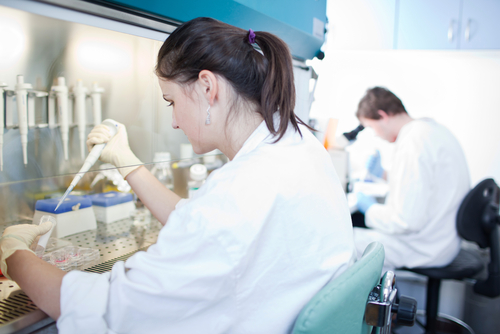In a recent press release from Bristol-Myers Squibb, officials announced the success of their ongoing phase III clinical trial, ALLY-1, in meeting its predicted end-points. The trial had been conducted among patients with chronic Hepatitis C Virus (HCV) infection with either advanced cirrhosis or recurrence of HCV post liver-transplant. Spanning a total of 12 weeks, this trial tested the effects of a combination therapy of daclatasvir and sofosbuvir once-daily with ribavirin. The results of this trial were presented at The International Liver Congress™ 2015, the 50th annual meeting of the European Association for the Study of the Liver (EASL) in Vienna, Austria between April 22nd and 26th.
The number of patients to be treated in this study were 60 (advanced cirrhosis) and 53 (liver transplants with HCV recurrence). During the course of the study, 4 patients with cirrhosis received liver transplants as well, out of which 3 extended the treatment even after transplant.
The Child-Pugh system was the standard used to detect the severity of the conditions, where gradations from A to C define the different levels of severity, with C being the worst case scenario. Cases with a ‘C’ grading are known as ‘decompensated cases of cirrhosis’ marked by any of the following complications: ascites (the build-up of fluid in the abdomen), hepatic encephalopathy (confusion or altered level of consciousness due to the liver’s inability to remove toxins from the blood), abnormal liver function, variceal bleeding and hemorrhage (internal bleeding from the veins in the stomach and esophagus) and jaundice among others. In this study, a total of 16 patients were cases of decompensated cirrhosis.
At the end of 12 weeks, as targeted, 94% of the patients with post transplant HCV and 83% of those with advanced cirrhosis achieved cure, referred to as sustained virologic response (SVR12). 9 of the 16 Child-Pugh class C patients and all 4 cirrhosis cum transplant patients achieved SVR12 as well. No major side effects were observed, apart from general ones like headache, fatigue, anaemia, diarrhea, nausea and arthralgia. A total of 12 patients had relapses after 12 weeks of treatment and are being retreated with the same combination of drugs, but for 24 weeks.
Commenting on this trial, Fred Poordad, M.D., ALLY-1 Lead Investigator and Clinical Professor of Medicine, Chief, Hepatology, University of Texas Health Science Center and VP, Academic and Clinical Affairs Texas Liver Institute, said that, “The results of the ALLY-1 trial point to the potential of this investigational daclatasvir-based regimen in a patient population with high unmet needs despite recent advances in hepatitis C treatment. Transplant patients take a variety of immunosuppressive medications to prevent organ rejection; that complicates the treatment of hepatitis C. In ALLY-1, we saw no drug-drug interactions between transplant and hepatitis C therapies and no need to make dose adjustments to patients’ transplant-related drugs while they received the daclatasvir-based regimen that resulted in high SVR12 rates.”
This is not the first study to reported on for treating chronic HCV infections. Earlier, two more studies, titled ALLY-2 and ALLY-3 were also presented 2015 Conference for Retroviral and Opportunistic Infections and the 2014 American Association for the Study of the Liver’s The Liver Meeting, respectively, and subanalyses from each study with the ribavirin-free regimen of daclatasvir and sofosbuvir were presented as posters during EASL 2015. Such was the impact that the combination of daclatasvir and sofosbuvir for 12 weeks was prescribed as first line treatments for patients with chronic HCV (genotype 3) infection, according to the EASL guidelines.
Douglas Manion, M.D., Head of Specialty Development, Bristol-Myers Squibb, said that, “The ALLY-1 trial results build off the ALLY-2 and ALLY-3 studies by demonstrating the versatility of the daclatasvir-based regimen to provide HCV cure in multiple patient populations that have been historically hard to manage, such as HCV genotype 3 patients, HIV/HCV coinfected patients, and patients with decompensated cirrhosis. Post-liver transplant and cirrhotic patients represent a still-unmet need and continue to present challenges to currently available regimens.”

